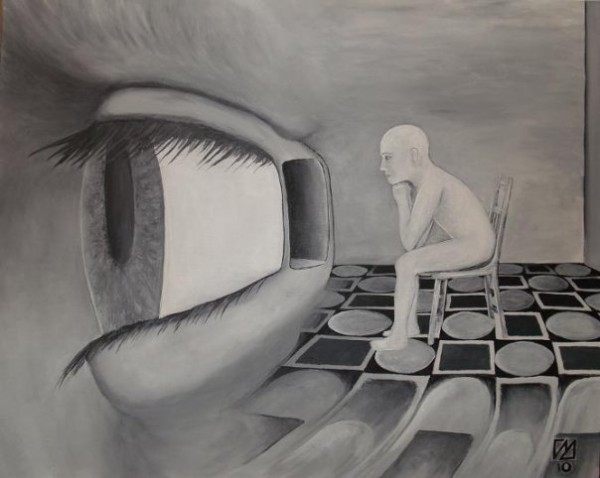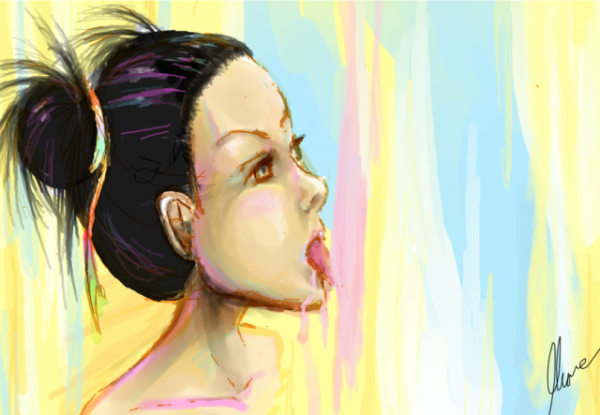Mind manifests itself subjectively as a stream of consciousness, which allows individuals to model the world, and so to deal with it effectively according to their goals, plans, ends and desires. This is rightly an amazing thing placed inside our craniums; however it can trick us as a part of its normal phenomena. Any disturbance from this normal function leads to a psychological or behavioral patterns associated with distress or disability that occurs in an individual, which is not a part of normal development or culture. The field of Mental Health has expanded over time, discovering such incredibly strange disorders a normal mind might even fail to believe like that but they exist and here we shall elaborate a ten.
10. Derealization

Image Source
Derealization ( DR ) is an alteration in the perception or experience of the external world so that it seems strange or unreal. Other symptoms include feeling as though one’s environment is lacking in spontaneity, emotional colouring and depth. It is a dissociative symptom of many conditions, such as psychiatric and neurological disorders.
The detachment of realization can be described as an immaterial substance that separates a person from the outside world, such as a sensory fog, a pane of glass, or a veil. Individuals may complain that what they see lacks vividness and emotional colouring.Familiar places may look alien, bizarre, and surreal. The world as perceived by the individual may feel like it is going through a dolly zoom effect . Such perceptual abnormalities may also extend to the senses of hearing, taste, and smell.
9. Autophagia
Image Source
As a mental disorder/symptom, Autophagia is a case in which one is compelled to inflict pain upon oneself by biting and/or devouring portions of one’s body. It is sometimes caused by severe sexual anxiety, sometimes combined with schizophrenia or psychosis
8. Synaesthesia

Image Source
Synaesthesia is a neurologically-based condition in which stimulation of one sensory or cognitive pathway leads to automatic, involuntary experiences in a second sensory or cognitive pathway.
The sensory links are intermixed. When a person senses something, automatically, another sensation lights up. For example patients see letters in different colors, some might see music, or taste words, days of the week have personalities, and some experience to see time, etc The picture above depicts of a synesthete being able to taste color.
7. Amputee Identity Disorder
Image Source
Amputee Identity Disorder , refers to a neurological and psychological mental disorder implying a psychological feeling that one would be happier living life as an amputee and is usually, if not always, accompanied by the desire to amputate one or more healthy limbs in order to enact that desire.
It may or may not be characterized by a sexual motivation for being or looking like an amputee which is called apotemnophilia . In addition, acrotomophilia , which describes a person who is sexually attracted to other people who are already missing limbs, may rarely be present too. These may represent as separate disorders but there does seem to be some relationship between them because most individuals exhibiting them in common.
6. Shopaholism

Image Source
Oniomania is the technical term for shopaholism, the compulsive desire to shop. The addicted person gets into a vicious circle that consists of negative emotions like anger and stress, which lead to purchasing something. After the buying is over, the person is either regretful or depressed. In order to cope with the feelings, the addicted person resorts to another purchase.
Sufferers often experience the highs and lows associated with addiction.Victims often experience moods of satisfaction when they are in the process of purchasing, which seems to give their life meaning while letting them forget about their sorrows. Once leaving the environment where the purchasing occurred, the feeling of a personal reward has already gone. To compensate, the addicted person goes shopping again.Eventually a feeling of suppression will overcome the person. For example, that the bought goods will be hidden or destroyed, because the person concerned feels ashamed of their addiction and tries to conceal it.